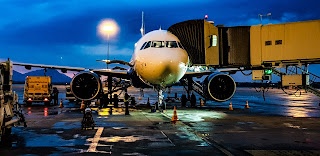Freakonomics Radio has just released the first two episodes in the new series, "Freakonomics Radio Takes to the Skies."
Across three episodes, the popular podcast is investigating aspects of airline economics by speaking with CEOs from Delta to Air New Zealand, economists, workers from pilots to meteorologists to flight attendant trainers to aircraft load agents, and – of course – passengers.
Episode one asked an essential question that all flyers have posed: "Air Travel Is a Miracle. Why Do We Hate It?"
In episode two: "Why Is Flying Safer Than Driving?" Freakonomics host Stephen Dubner the incredible record of safety achieved by aviation.
In an interview with Dubner, Ed Bastian, C.E.O. of Delta Air Lines, points out that "airlines cooperate and collaborate on safety." Bastion goes on to point out that auto companies would regularly compete on safety and their features.
"They're not doing that as much anymore," Bastion said. "They're learning from the aviation industry."
Consider that last year 40,000 people were killed in auto accidents. Throughout the world, over one million people died last year in automobile accidents. It's a sobering thought.
Throughout the episode, Dubner investigates the reasons for the safety achievements of the airline industry. Through various interviews, he learns that:
- Pilots undergo rigorous recurrent training as compared to auto drivers whose license is typically good for a lifetime with little or no training updates.
- Sara Nelson, president of the Association of Flight Attendants and flight attendant with United Airlines, points out that flight attendants were first added to passenger planes decades ago as safety experts, not snack and beverage dispensers.
- Warren Weston, lead meteorologist at Delta Air Lines, points out that turbulence during flights is growing in frequency and intensity, due to climate change.
- Billy Nolen, acting FAA administrator, talks about strategies to address the pilot shortage, such as airlines running pilot academies and the federal government running programs to alleviate the problem. As Nolen notes, training a pilot is a long, carefully orchestrated, and complex process.
The third and final episode of "Freakonomics Radio Takes to the Skies" will be released next Thursday, March 9.

Comments
Post a Comment
Thank You for your input and feedback. If you requested a response, we will do so as soon as possible.